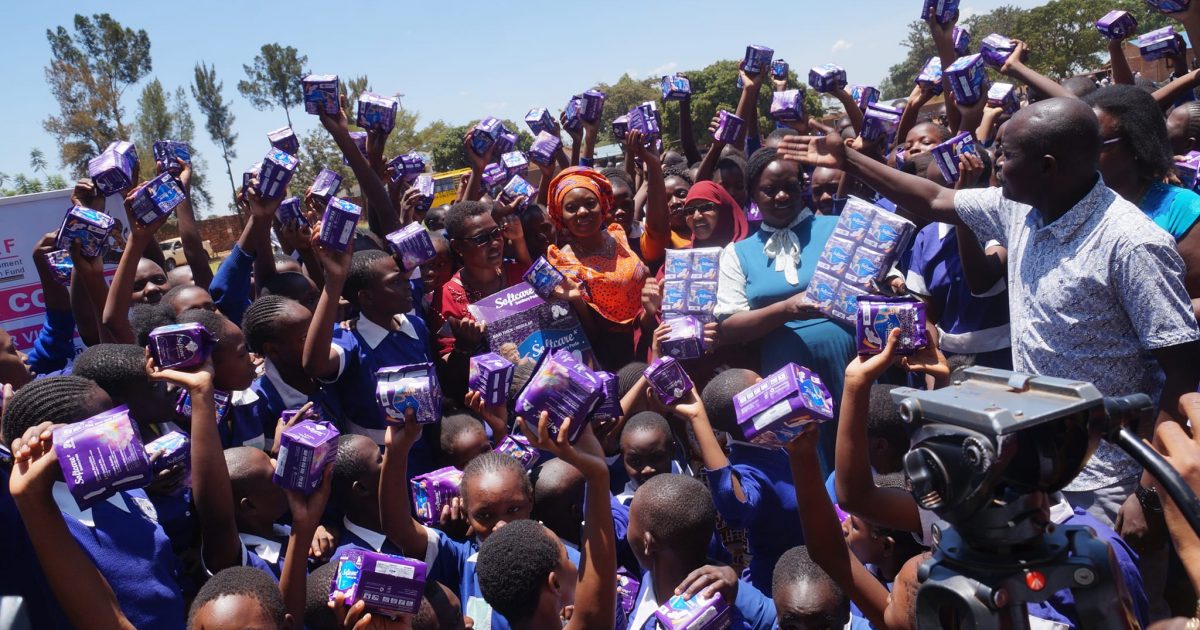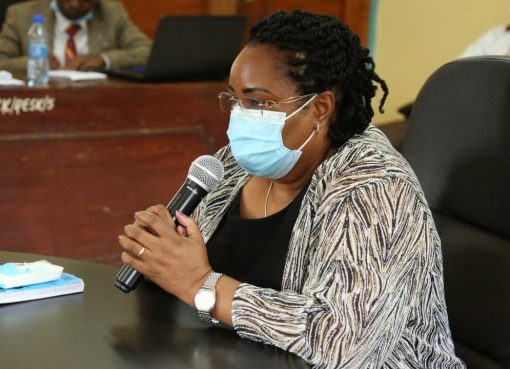Busia Women Rep Catherine Omanyo has challenged the community in Busia to embrace the dialogue on matters of menstrual health hygiene which for many years has remained women affairs and unheard of among men in rural setup.
The legislator noted that five hundred million women and girls undergoing menstruation around the world struggled to manage their menses each month due to lack of affordable and available sanitary pads, critical services like water or safely-constructed and private toilets, and sufficient information on menstruation.
Speaking during the World Menstrual Hygiene Day, Omanyo attributed the rise in the stigma and gender based violence cases witnessed within the county to involvement around menstrual health hygiene.
“Most GBV and sexual abuse cases we experience in this county originate on menstrual hygiene. Lack of basic necessity for the girls during their menstrual period pauses a risk of infection as they are forced to use alternative items to control the flow,” said Omanyo
According to Omanyo, poverty has been the biggest stumbling block in addressing the stigma associated with menstrual hygiene. The rise of teenage pregnancies has always been attributed to most girls lacking basic necessities during this crucial moment in life.
“I have encountered most girls who were lured into sex by their male counterparts in order to get a pad. These cases are common in rural areas where parents don’t discuss matters sex and menstrual health with their children,” the legislator added.
She noted that being silent on the topic of menstrual health meant at least two out of seven women or girls missing days of work or school or even dropping out entirely.
“In Kenya, 65 percent of women and girls cannot afford sanitary pads and do not have access to adequate disposal facilities,” she noted urging the government to use the 47 offices of women reps to ensure girls don’t drop out for lack of pad.
The legislator said she was on a mission to work with NGOs to increase awareness of menstrual hygiene among younger generations to create demand for menstrual products, a key component of financial sustainability, and to increase awareness of locally-owned sanitation businesses, where customers can easily find and procure the products that they need.
“My appeal to the government is that there is a need to remove tax on pads and donations from foreign donors which are set to address the menstrual health issue so as to give dignity to the women majority of whom suffer in silence in rural setup,” Omanyo said.
The legislator regretted the rise in the number of youths between 18 to 30 who ended up being convicted for defilement or impregnating minors who give in to get pads.
Her sentiments were echoed by the County Director FAWE Kenya Everlyne Amunga, who noted that county government needed to develop policies to reduce negative impact of sexual maturation and menstruation on school attendance and performance by increasing knowledge among students, parents and teachers on SMH (Sexual maturation and hygiene practices). “We must develop policies which protects girls and protect them from those who take advantage of silence of the community on menstrual health debate to sexual abuse young innocent girls,” said Amunga.
Menstrual health needs a multisectoral approach to address the challenges associated with it. This will help end stigma and mitigate cases of teenage pregnancies and early marriages among youths.
By Absalom Namwalo





